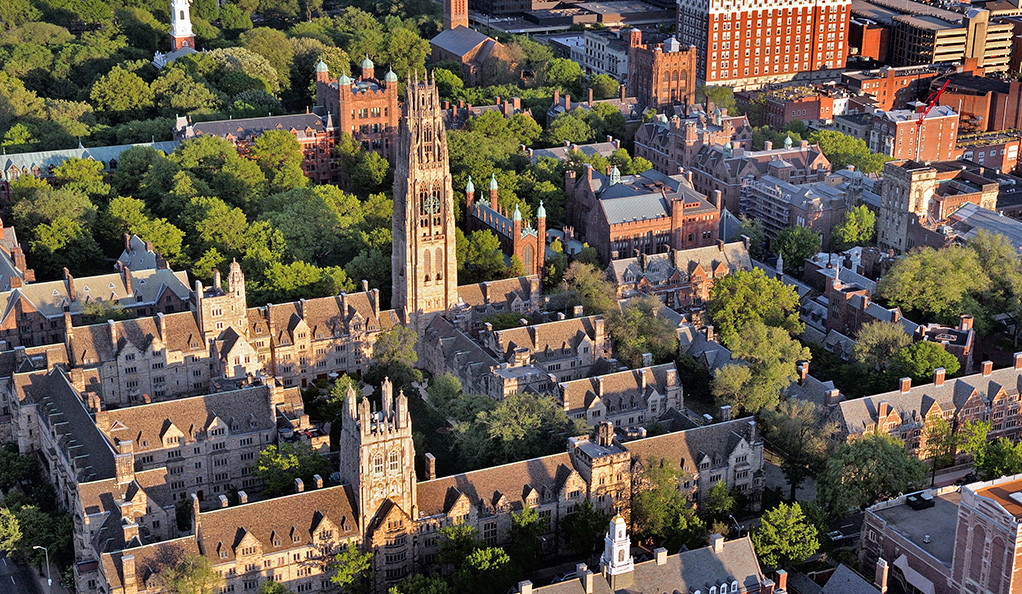
Shortly before last semester’s finals period, the Yale College Council and the Yale College Dean’s Office finalized their expansion of the dean’s excuse to include the postponement of exams on the grounds of technical difficulties. With most classes set to remain online through the end of the academic year, the new policy will remain in effect for the entirety of the spring semester.
The expansion to include technical difficulties has been a priority for YCC President Aliesa Bahri ’22 and Vice President Reilly Johnson ’22 since their campaign this fall, when the policy was included on their initial list of “Big Ideas for an Equitable Yale.” According to YCC Deputy Academics Director Iris Li ’24, this was “one of the first policies” that the new YCC administration wrote last semester.
“Although the policy is not as extensive as we had hoped, it has never been more important for technical difficulties to be understood as a very real and sometimes-insurmountable barrier to participating in your education,” Johnson wrote in an email to the News. “The policy was implemented for the first time this semester, and we hope it will provide some relief to students unable to take virtual finals at the end of the semester due to technical difficulties.”
Prior to the expansion, a dean’s excuse for exams could be requested only in cases of “incapacitating illness or incapacitating condition of any kind,” “the death of a family member or a comparable emergency,” “observance of religious holy days” or “participating in varsity intercollegiate athletic events,” according to the academic regulations of Yale College.
With most classes being conducted online throughout this academic year, Li described technical difficulties as a “more than valid reason” for a dean’s excuse. Li, who has been enrolled remotely since the beginning of the fall semester, noted that she holds a “personal stake” in this policy.
“My parents asked me to stay remote fall semester and I was kicked off Wi-Fi more times than I can count, probably at least once per week or so,” Li said. “I just had a lot of fear about being kicked off Wi-Fi in the middle of a test because I know professors are very strict about being able to keep tight surveillance on us at all times.”
YCC Academics Director Saket Malhotra ’23 said that it was “honestly kind of crazy” that no safety net was already in place for students who faced technical difficulties, referencing natural disasters like those that led to the recent blackouts across Texas and inequities in home Wi-Fi networks or personal computers that could disadvantage certain students.
According to Johnson, Malhotra and the rest of the YCC academics team assembled a policy report “requesting that Dean’s Excuses be expanded to cover technical difficulties” last November. Bahri and Johnson then “presented the report to [Dean of Yale College Marvin] Chun, who in turn discussed the subject with fellow administrators.”
Malhotra said that administrators were largely receptive to the proposal, and that the YCC “just needed a little bit of justification,” including data from last year’s Yale College Council x Yale College Committee on Teaching and Learning COVID-19 Academic Accommodation Survey, which demonstrated that hundreds of students experienced technical difficulties as barriers to academic performance.
YCC Deputy Academics Director Rosie Rothschild ’24 told the News that “technology can be unpredictable,” even if students are living on campus and that “no student should be punished for something they can not control.”
Li suggested that this policy might be particularly meaningful for members of the class of 2024, most of whom are not currently living on campus, to have as a potential fallback throughout the semester.
“I think going in knowing that you have this in your back pocket, and being made aware of it, is reassuring,” Li said. “Even if I have a total Wi-Fi botch up, or if, like the Texans, I lose power, I think it’s definitely reassuring to know that Yale has got your back in a sense, and that it recognizes that it’s asking you a lot so it’s going to give you the benefit of flexibility.”
Malhotra and Li both affirmed their belief that the expansion to the dean’s excuse is here to stay, and will remain necessary even after in-person instruction is resumed. According to Li, students will probably continue submitting work online, potentially encountering technical issues. Malhotra additionally noted that “there will probably be some classes that have mostly online structure,” citing courses like CS50 and S&DS 230.
The YCC, however, was not able to extend the technical difficulties dean’s excuse to apply to essays and projects. According to Malhotra, the YCC is “still working on” this expansion.
“If you have an outstanding technical difficulty a day or even two days before a final paper is due, then that’s a really big blow,” Malhotra said. “That puts you at a disadvantage to students who don’t have those technical difficulties.”
A complete list of the grounds on which students can request dean’s excuses can be found online.
Lucy Hodgman | lucy.hodgman@yale.edu







